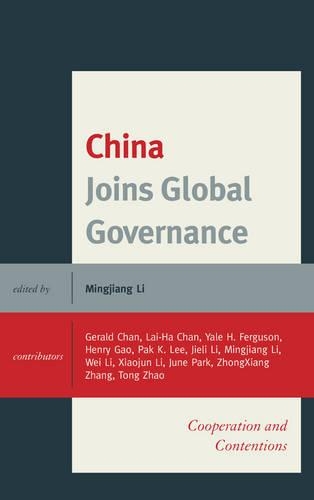
China Joins Global Governance: Cooperation and Contentions
(Paperback)
Publishing Details
China Joins Global Governance: Cooperation and Contentions
By (Author) Gerald Chan
Contributions by Lai-Ha Chan
Contributions by Yale Ferguson
Contributions by David Fouquet
Contributions by Henry Gao
Contributions by Pak K. Lee
Contributions by Jieli Li
Edited by Mingjiang Li
Contributions by Wei Li
Contributions by Xiaojun Li
Bloomsbury Publishing PLC
Lexington Books
24th March 2015
United States
Classifications
Professional and Scholarly
Non Fiction
Central / national / federal government policies
Political economy
Globalization
327.51
Physical Properties
Paperback
222
Width 152mm, Height 229mm, Spine 17mm
340g
Description
For many years, political leaders and analysts have debated the impacts of Chinas rise on the stability of the existing international system. International observers have also debated whether China would be a status quo power or a revisionist power, and whether China would observe the rules and regulations of international institutions and regimes. China Joins Global Governance: Cooperation and Contentions, edited by Mingjiang Li, provides an insightful contribution to our understanding of these issues through a specific angle: Chinas role in global governance. The contributors to this volume address such questions as, how has China dealt with major global institutions and regimes How has China helped address various global challenges How is Chinas rise changing the international approach to global governance The contributors cover a broad range of issues, including Chinas vision and strategy in global multilateralism, Chinas role in global economic/financial/trade governance, Chinas policy towards the global environment and international development, and Chinas approaches to various global security issues such as nuclear disarmament and nonproliferation. China Joins Global Governance is an essential text in understanding the future trajectory of Chinas international policy.
Reviews
This important volume brings together leading experts to address several key questions related to one of the most important themes of this decade: China's roles in running the world. With its detailed focus on specific global issues, from trade to climate to energy to security, and nuanced arguments, this book is a significant contribution to our understanding of how global governance is unfolding in a world where China matters more every day. -- Ann Florini, Singapore Management University
Author Bio
Mingjiang Li is assistant professor at the S. Rajaratnam School of International Studies (RSIS), Nanyang Technological University, Singapore.
